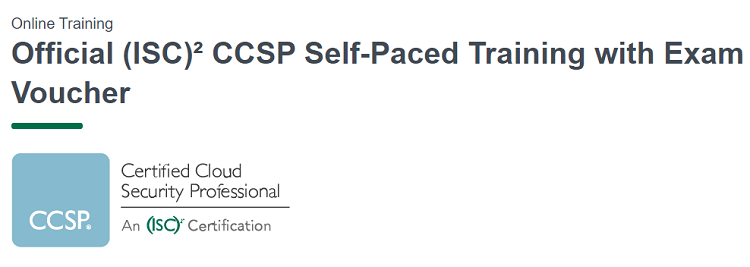Digital information security is the foundation of any organization’s overall IT strategy. With the increasing risk of data breaches and the growth of cybercrime, businesses are desperately seeking out skilled people to help them protect their data.
Certification is an important step to take if you want to advance your career in cybersecurity. But which certification should you pursue?
The Certified Information Systems Security Professional (CISSP) and the Certified Information Security Manager (CISM) are among the most sought-after certifications in information security.
This post will compare the two and help you make an informed decision on which certification best fits your career path.
CISSP and CISM are vital IT security certifications. Despite being similar in many ways, here are some of their notable differences.
Main Differences Between CISSP vs CISM
The main differences between CISSP vs CISM are:
- CISSP deals with the operational side of safety, whereas CISM deals with the strategic and business goals-related aspects of security
- The CISSP certification is for professionals who design, engineer and manage the overall security posture of an organization, whereas the CISM certification is primarily for managers.
- The CISSP certification is offered by (ISC)², whereas the CISM certification is sponsored by the Information Systems and Audit Controls Association (ISACA)
- The CISSP exam takes six hours for 250 questions, and you require a minimum of 70% to pass, whereas the CISM exam takes four hours for 200 questions, and you require a score of 450 or more to pass
What is CISSP?
CISSP is a vendor-neutral, industry-recognized certification sponsored by (ISC)² for information security professionals. Although there are different security certifications available, the CISSP is considered one of the essential cybersecurity certifications by many, both in the business and government sectors.
CISSP certification proves you have the know-how to design, implement, and manage a cybersecurity program. Like CISM, CISSP is an expert-level certification pursued by experienced security managers, executives, analysts, and engineers.
Pursuing a CISSP certification often results in IT professionals experiencing either career advancement or a raise in their pay. On average, CISSPs experience a 20% raise at their job. Besides, they often receive promotions or increased responsibilities. Plus, the credentials will always be useful in their career.
What are the Requirements for CISSP Certification?
To become a CISSP-certified professional, you must meet specific requirements. First, you need to pass a background check. Next, you must have five years of experience as a security professional in two of the eight domains of the (ISC)² Critical Body (CBK) of Knowledge. These domains are:
- Software development security
- Security and risk management
- Communication and network security
- Security operations
- Asset security
- Security engineering
- Identity and access management
- Security assessment and testing
If you have the relevant experience required, you must pass a 250-question test within a 6-hour time limit. This test asks questions from all eight domains of the CBK.
There is also a requirement for an endorsement from a current (ISC)² member once you pass the test. If you don’t know any certified CISSPs, you’ll need to find one.
If you do not meet the work experience requirement for CISSP, you may choose to join as an associate of (ISC)². This program offers shorter tests and continual training. The associate program is a good step towards full CISSP certification in the future. To maintain your certification, you need to pay your annual membership fee and earn 120 CPEs every three years.
How Much Does a CISSP Earn Annually?
CISSP-certified professionals earn $59,000 to $194,000 per year. But remember that salaries vary widely by the scope of an employee’s knowledge and experience in their field.
According to the Global Knowledge 2020, IT Skills and Salary Report, professionals who are CISSP-certified have some of the highest-paying IT salaries in the world. In North America, CISSP professionals’ wages were $138,647 in 2020 — a 10% increase from 2019. Even more impressive, their ranking in the region went up from 10th place to 5th place in just one year.
In August 2020, PayScale surveyed 9,226 CISSP professionals and found that the average salary for CISSP jobs was $114,293. Location, years of experience, and job title determine the range of salaries received by CISSPs.
Most Common Job Titles for CISSPs
- Senior IT security operations specialist
- Principal cybersecurity manager
- Security systems administrator
- Information assurance analyst
- Senior information security risk officer
- IT security engineer
- Senior IT security consultant
- Chief information security officer
- Information security assurance analyst
- Chief information security consultant
- Senior information security assurance consultant
Reasons to Pursue a CISSP Certification
- CISSP is a product of (ISC)², — the world’s leading non-profit organization specializing in IT security. CISSP is well-recognized by employers and highly valued by those who have it.
- CISSP meets international standards for certifications. It is the first information security credential to be certified under ISO/IEC Standard 17024.
- Plenty of job opportunities – According to (ISC)² Cybersecurity Workforce Study, there are over three million cybersecurity jobs openings. That presents a huge opportunity to land your dream job.
- It is highly valued worldwide – the CISSP credential is an internationally recognized security certification. Google and IBM, among other big companies, value CISSP-certified professionals. They often hire CISSP experts who have the knowledge, commitment, and skills required for a particular information security position.
- High salaries – The CISSP certification is number two on the most lucrative IT certifications list. Being a CISSP certified professional means that you will be earning up to 25% more than an uncertified person.
- The CISSP certification is an industry-changing credential that shows that you are a true cybersecurity leader with the ability to think critically and make essential decisions about emerging technology, as well as long-term business impacts.
- Job security – As technology advances, information security professionals are in high demand. CISSP professionals have an 80% employment rate. The world is digitizing, and the need for information security professionals will continue increasing as we move forward.
Roles of a CISSP
- Identifying and analyzing an organization’s security needs and recommending the best solutions
- Identity and access management
- Security assessment and testing
- Ensuring the security of all assets and operations
- Software development security
What is CISM?
CISM is an internationally recognized certification offered by ISACA on managing enterprise information security teams. Getting your CISM certification puts you in high demand with employers who recognize the achievement and capability that comes with it.
If you are an IT manager, security analyst, or consultant focused on security, you may be eligible to obtain the CISM designation. The certification requires you to understand how business objectives and information security relate to one another and manage the company’s information security.
What are the Requirements for a CISM Certification?
The CISM certification is a vital marker of comprehensive knowledge of technical competence and an understanding of business objectives around data security. The certification process includes passing the CISM exam, which is a 200-question exam that covers these topics:
- Information security incident management
- Information risk management and compliance
- Information security management
- Information security program development and management
The CISM exam is multichoice, and you can either take the test online or in person. The scores range from 200 to 800, and you need to get a minimum of 450 to pass the exam.
To acquire the certification, you need a minimum of 5 years of security experience within the past ten years, where three of those must be as a manager.
Acceptable substitution for this requirement is a CISSP certification (which can count as two years of experience). Teaching information security at the university level can also be used as a substitute.
One fantastic benefit of the CISM certification is that you do not need the entire job experience required to begin the process.
You can take the exam even if you do not have enough professional experience, and if you do well, you can apply for the certification as long as it is within five years. ISACA says this is “acceptable” and that it is common practice in the industry.
Apply for your CISM certification once you have passed your exam and have enough work experience to qualify. This process is easy and requires a one-time $50 processing fee.
The CISM certification requires you to remain up-to-date with a continuing education policy. To maintain the CISM Certification, you must have at least 20 CPE (Continuing Professional Education) credits every year, or 120 credits over three years. You also need to commit to following a Code of Professional Ethics.
How Much Does a CISM Earn Annually?
As a CISM professional, you can expect an average annual salary of $52,402-$243,610. Entry-level positions will be at the lower end of the spectrum, with salaries averaging $52,402. Senior-level employees with successful projects under their belts can expect much higher wages running into six figures.
PayScale reports the average salary of a CISM to be $129,000. The number of years of relevant experience and the type of projects you have worked on substantially affect your pay, along with bonuses and benefits.
Most Common Job Titles for CISM
- Information security manager
- System analyst
- Network engineer
- Information systems security officer
- IT architect
- Security engineer
- Information/privacy risk consultant
Reasons to Pursue a CISM Certification
- Proves your expertise – A CISM certification shows that you are an expert in information security and have the experience and know-how to build and maintain a top-notch information security system.
- Helps you grow your networking skills – CISM certification gives you an ISACA membership. The community is full of experienced experts, and you can always ask for help from your seniors. You will also be able to grow your networking skills, build long-term relationships, and access better job opportunities.
- Challenging job environment – CISM requires that its certified employees remain active by making sure they constantly upgrade their skills and knowledge. Doing so will help you keep up with your firm’s ever-evolving standards and policy changes.
- Better pay – CISM-certified professionals command a hefty salary. Earning the CISM certification proves that you are experienced and have a high level of professional credibility. It also shows employers that you have up-to-date skills and are an asset to the company.
- You become equipped with in-demand skills -CISM accreditation is the best way to show your skills in information security and business goals. The demand for such skills is high, making CISM an excellent choice for your career growth.
- The CISM certification is considered extremely valuable to companies and businesses. The wide range of industries it applies to means the value of this certification is significant. It is also a trusted way to measure ongoing education, career progression, and value delivery.
Roles of a CISM
- To manage risks and ensure compliance with information security policies.
- Manage any information security incidents that arise.
- To develop, implement and manage an information security program in an organization.
Frequently Asked Questions about CISM and CISSP
Answer: If you want to advance in your career, you may want to achieve a CISSP certification first and then earn a CISM. Many IT managers and executives hold this dual certification.
Together, these credentials will open doors for you, especially if you want to move into management or leadership positions, including Chief Information Security Officer (CISO) or Chief Information Officer (CIO).
Answer: The CISM exam has a pass mark of 450 or higher. Getting this score means that you have met the consistency of a standard of knowledge as established by ISACA. This represents the minimum consistent standard for certified professionals.
Answer: Once you receive your CISSP certification, get validated as an (ISC)²- ISC2-certified professional; otherwise, you must retake the exam. The validity of the CISSP certification is only three years, and you should re-certify yourself to maintain the standards of the examination and those of the certification.
Answer: The Global Knowledge IT Skills and Salary Report 2020 reveals that IT professionals who hold the CISSP-certification earn more than those who do not.
The CISSP-certification is also one of the most popular certifications in the world. ISACA explains that CISSP security certifications continue to be in high demand, and companies are looking for candidates with these skills.
Conclusion
The CISSP and CISM certifications are both industry-renown that will benefit your career. If your job responsibilities include managing a team and guiding an organization’s security, you might be a better fit for the CISM.
The CISSP certification shows a dedication to your chosen profession. It demonstrates that you have the experience and have an in-depth knowledge of all things cyber security.
Both certifications are a great way to advance your career at a job, learn new skills, and make new connections. You can start with CISM and later extend to CISSP or vice versa. Either way, you can be confident you are making a sound career decision.
- CISSP vs CISM: Which Certification is Right for You? - December 11, 2021
- Should I Learn C++ or Java - December 8, 2021
- C# vs C++: What’s the Difference? - November 28, 2021










No Comments